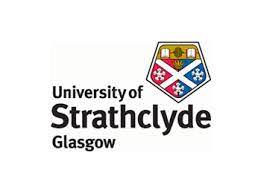University of Strathclyde: Project funding for study of employee voice and contemporary working lives
A multi-disciplinary research project worth more than £680,000 at Strathclyde Business School (SBS) will investigate the extent, nature and effectiveness of worker voice.
The three-year ‘Amplifying Employee Voice and Hearing the Unheard’ study aims to fill an important knowledge gap by delving into the lived experiences of workers on differing contracts, with diverse working arrangements and in multiple work settings and occupations.
Reduce inequality
Dr Stewart Johnstone, Principal Investigator and Reader in SBS, said: “It is generally acknowledged that good jobs and workers’ ability to exercise their voice can reduce inequality and poverty and improve working lives, but detailed empirical evidence is limited.
“We need to know the extent to which workers have access to formal voice mechanisms that enable them to participate in the decisions that affect them at work and whether alternative voice channels have emerged that complement or substitute more traditional provision.
“We will also examine how workers perceive the effectiveness of these mechanisms for improving their working lives. It is important to know the reasons why workers exercise their voice or why they may remain silent.
“Finally, and importantly, we will examine the ways governments, policymakers and employers can devise policies that can amplify employee voice for the benefit of workers, organisations and society.”
Employee voice
The project brings together a diverse team of University of Strathclyde Business School researchers within the Department of Work, Employment and Organisation and Economics, with different methodological expertise and sector knowledge.
They will develop an innovative multi-level study of employee voice and contemporary working lives. The research will also use a combination of methods including labour market analysis, stakeholder interviews, employer case studies and focus groups to better understand the realities of voice.
The geographical focus of the study is Inverclyde in west central Scotland. With a significant public sector, but encompassing employment in logistics and warehousing, contact centres, retailing, social care and the hospitality industry, it provides a compelling example of a de-industrialised, disadvantaged region.
The study will provide valuable, seldom considered data on the importance of worker voice for improving working lives generally, and an opportunity to capture the voice of low paid, minority and disadvantaged workers who often go unheard in the mainstream employee voice literature.
The project also involves the Chartered Institute of Personnel and Development (CIPD), employer and trade union representatives, Acas and the Inverclyde Advice and Employment Rights Centre.
Key challenges
The grant is one of seven funded by the Economic and Social Research Council (ESRC), which is part of UK Research & Innovation, under the 2021 Transforming Working Lives call on ‘Changing Working Lives and Power in the Workplace’. The study commences in October 2022.
Professor Alison Park, Interim Executive Chair of ESRC, said: “The world of work is changing rapidly. Understanding how and why it is changing, and how this affects workers’ lives, will help policymakers, businesses and employees to navigate key challenges, including how to help people to progress in their careers and how to enhance gender equality in the workplace.
“These seven new research projects will collaborate and coordinate with one another, enhancing the collective impact of ESRC’s investment.”

